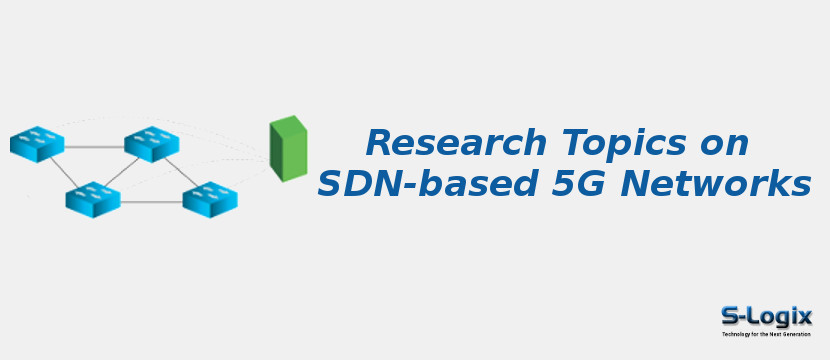Software Defined Networking (SDN) is an innovative paradigm that links up the future necessitate of the 5G mobile networks to bring forth additional benefits in lower latency, higher data rates and more coverage which plays a crucial role in today-s commercial telecommunication networks.
5G is one of the leading latest-generation rapid cellular mobile communications. It has increased users stipulation and data rate stipulation raised upto 1000-folds. In 5G, Security requirements are higher than in preceding networks (2G, 3G, LTE), for which the latest solutions are essential to provide intelligent control across heterogeneous cells for reliable mechanisms and further adoption of the 5G network. The 5G network design fundamentals include,
• Usage of high frequencies range and other spectrum options like pooling and aggregation.
• Address the overall coverage and capacity separately.
• Optical transmission and enable switching wherever possible.
• Bring communicating endpoints closer together.
• Minimizing the number of network layers and pool resources as much as possible using the cloud.
• Minimizing the functionalities which access points can perform.
• Maximizing the energy efficiency across allover network entities.
• Also, Use an intelligent agent to manage QoE, routing, mobility and resource allocation.
• New air interfaces and multiple access schemes can be designed to contribute optimized high frequencies, latency and massive connectivity.
The 5G mobile networks support the mechanisms for traffic differentiation and should achieve the end-to-end Quality of Service (QoS) requirements for incoming 5G applications. The SDN benefits over 5G Networks are followed,
• Interoperability with other vendors interfaces.
• Help to use less complex, less expansive, unified and adjustable configurations over network behavior.
• Automated administration: 5G networks can identify suitable changes and how handle changes automatically.
• Provides a seamless migration based on operator needs with relevant cost reduction.
• Providing QoS obligation for 5G applications: Combining SDN and 5G will potentially address QoS parameters requirements for each types of data flow.
• It provides a better solution to the limitation of multi-hop wireless networks and storing data at the edge network to reach the essential high capacity of 5G systems.
The design fundamentals Facilitators to address some of the challenges over SDN of 5G networks are:
• Capacity
• Data Rate
• lower End to End latency
• A massive number of connections
• reduced Cost and consistent
• Quality of Experience (QoE).
In the last decades, many mobile users get increased highly depending on the service demand and quality assurance. To meet up the users demand, 5th generation revolutionary technology is heading towards future telecommunication systems to provide a more user-friendly environment 5G heterogeneous network that faces numerous amount of privacy and security issues and attacks such as,
• Eavesdropping
• Jamming Attack
• Topology Poisoning Attack
• MITM Attack
• Man-in-the-middle Attack
• Side Channel Attack
• Stalking Attack
• DoS and DDoS Attack.
